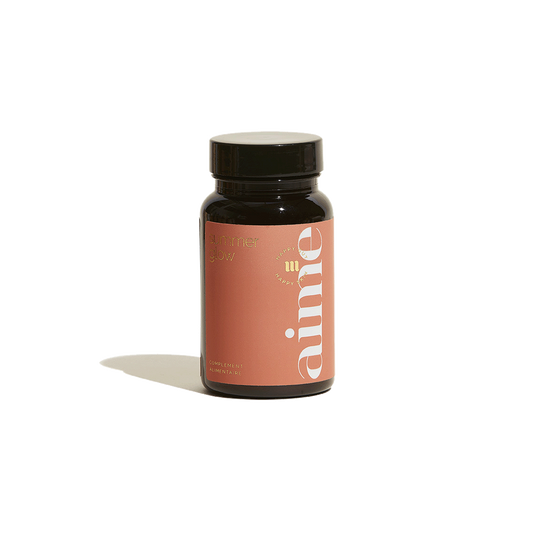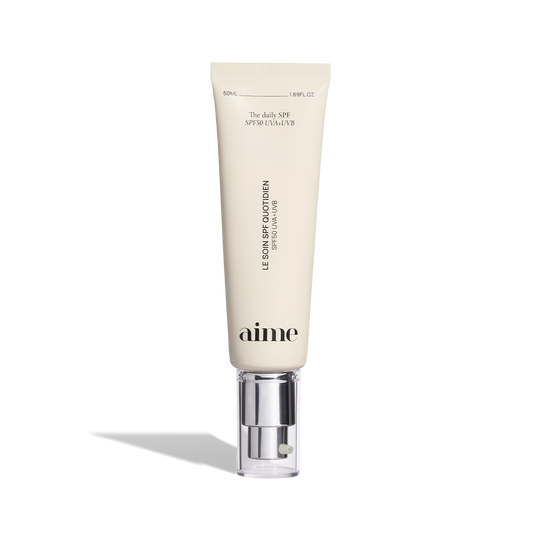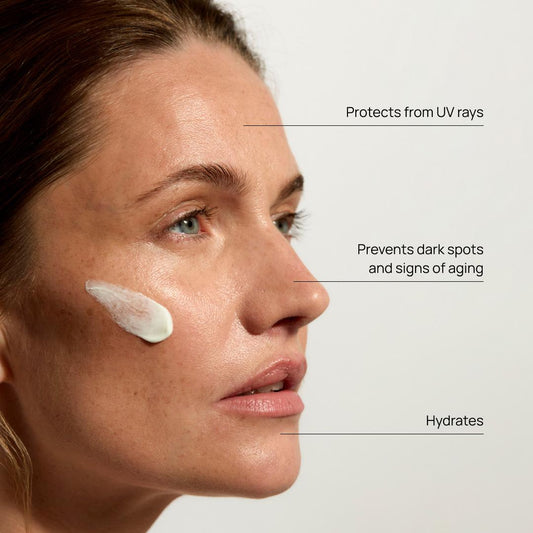What happens when you tan?
Tanning is a reaction that aims to defend the skin and adapt it to the strength of UV rays. The cells of the dermis and epidermis: melanocytes
Are you wondering why your colleague tans more than you, even though you go to the beach more often than she does? Why does your skin tan while your friend turns scarlet at the first rays of the sun? All this can be explained by our capacity to produce melanin, which varies in intensity from person to person. People who produce a lot of it tan more easily and are less sensitive to the sun, while those who produce less are more likely to get sunburned.
Why do we get sunburned?
Sunburn is a localized burn of the epidermis, more or less severe, due to UV rays. Sunburn occurs when the melanin protection system no longer functions as well. Damaged, melanin is no longer able to fight free radicals and allows them to pass through. This phenomenon is called oxidative stress. It is recommended to be careful not to get sunburned, as repeated sunburn contributes to premature skin aging.
Why prepare your skin for the sun?
As summer approaches, it is more than essential to prepare your skin for the sun , but why? Although the sun is very pleasant and comforting, it can also be dangerous for the skin. UV rays weaken the skin and accelerate its aging . By adopting the right actions to prepare your skin before, during and after the season, you will strengthen your epidermis and promote a healthy tan. Who doesn't dream of a tanned complexion?
This preparation does not exempt you from sunscreen when you are exposed to the sun to avoid sunburn. However, properly nourishing your skin with the nutrients it needs will allow you to tan safely and limit the effects of skin aging. This will also help those with lighter and more sensitive skin to tan better and tolerate the sun better. After the season, it is important to maintain your tan so that it lasts.
How to prepare your skin for the sun?
Preparing your skin for sun exposure before and during the summer will involve important steps that you may already follow in your beauty and skincare routine. After thoroughly cleansing your face , exfoliate with a gentle, grain-free exfoliant to remove dead cells and deeply cleanse the skin. You can exfoliate once or twice a week, for example, before and during the season to prolong your tan.
After exfoliating, it's essential to properly moisturize your skin with a suitable moisturizer. Dry skin is, in fact, more sensitive to the sun. Since our skin is a reflection of our body, you must hydrate not only your skin but also your body by drinking at least 1.5 liters of water per day.
When you're out in the sun, always remember to protect your skin with high or very high protection sunscreen (cream, oil, spray, etc.). This filter will allow you to tan without damaging your skin and prevent sunburn. You'll need to apply it regularly throughout the day to maximize protection.
Food supplements
Dietary supplements (capsules, tablets, etc.) can be recommended to prepare the skin for the sun. It is recommended to take your dietary supplement to prevent sun reactions 1 month before summer, during the holidays and up to 1 month after. It will help you prepare your skin for tanning and limit the risk of burns (sunburn) and pigment spots . The nutrients included in sun preparation dietary supplements will boost natural tanning and provide the skin with antioxidants to resist free radicals produced by UV rays.
We have designed a formula combining natural carotenoids to protect skin cells, vitamins and selenium to fight against oxidative stress and therefore skin aging and minerals to best prepare your skin for the sun. Summer Glow should be taken in addition to a varied and balanced diet based on fruits and vegetables. It provides an additional intake of nutrients, which we do not necessarily find on our plate or not enough, to help the body fight against aggressions and protect the skin so that it remains healthy.
It is of course recommended to adopt a healthy lifestyle and a varied and balanced diet that will allow your body to absorb the right nutrients. Among the foods recommended for preserving the skin, we can mention carrots, pumpkin, mango, lettuce, spinach… They are recommended because they are rich in beta-carotene (a carotenoid). This pigment gives the orange-yellow color to fruits and vegetables, but above all it boosts the synthesis of melanin. Its action is multiple: preserving the elasticity of the skin, strengthening the nails, making the hair shine… Beta-carotene is transformed by the body into vitamin A, an antioxidant that helps slow down skin aging due to UV rays.
Dietary supplements are not medicines and do not replace a balanced diet. They do not replace sunscreen.










